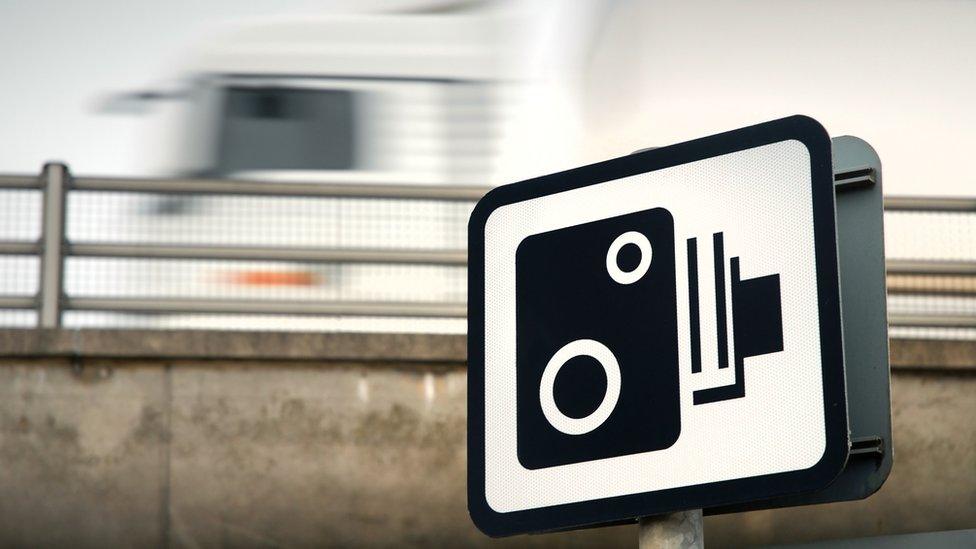Drink-drive tests focused on tip-offs, says commissioner
- Published
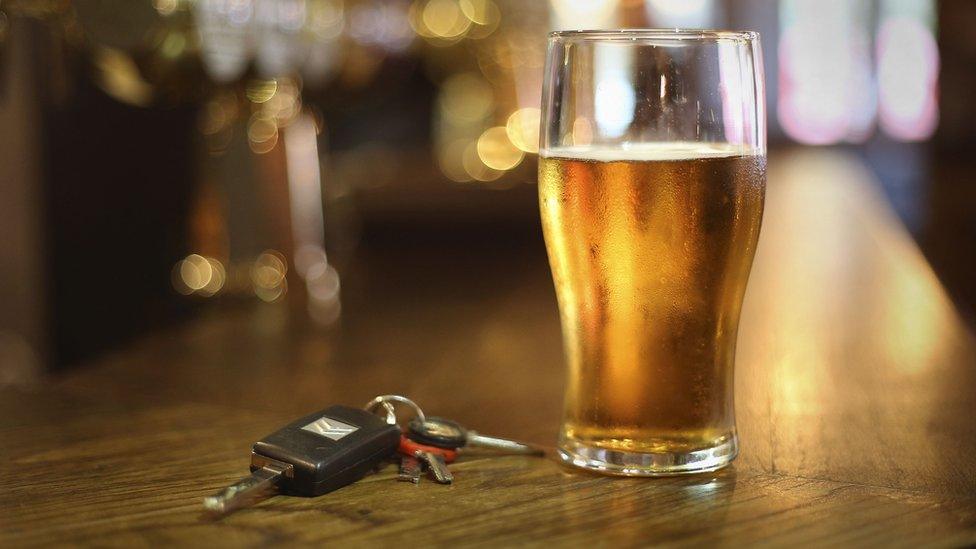
Breath tests are down but the "hit rate" of catching drink drivers is up in the Dyfed-Powys force area
Catching drink-drivers by focusing on tip-offs is working, a Welsh police force commissioner has said.
Dyfed-Powys Police tested 1,600 fewer motorists in this year's summer crackdown campaign than in June 2016.
As a result, there were fewer positive tests but when the percentage of tests to arrests is worked out, there is a jump from 3.2% in 2016 to 5.9% in 2017.
"The hit rate has almost doubled," said Dyfed-Powys Police and Crime Commissioner Dafydd Llywelyn.
The commissioner was responding to concerns that a fall in the number of roadside breath tests reflected cuts to frontline services.
But he told a meeting in Carmarthenshire that police tactics had changed and they were using a more intelligence-led approach.
He said: "In the past, there was an element of randomness to stop-checks. There was a lack of being as efficient as they could be.
"They should be intelligence-led and less random."
Concerns were raised in September when it was revealed the total number of breath-tests carried out in Wales during the June summer anti-drink-drive campaign had halved.
In 2016, there were 9,500 tests carried out across Wales during the month, while in 2017, it was just 4,600.
In the Dyfed-Powys force area, the number of tests dropped from 2,751 to 1,133 but the percentage rate of arrests increased in their force area.
It meant that while in 2016 Dyfed-Powys Police needed to stop about 250 cars to catch eight drink-drivers - in the 2017 campaign, officers needed to stop under 140 cars to catch the same number of offenders.
Similarly, in the Gwent force area where drink-drive tests were slashed from 1,104 to just 88 - the number of positive tests only fell from 51 to 34 offenders.
That equates to a 5% positive hit rate in 2016 - but 39% in 2017.
Supt Glyn Fernquest, force lead for roads policing in Gwent, attributed the reduction to "a targeted approach to tackling this issue".
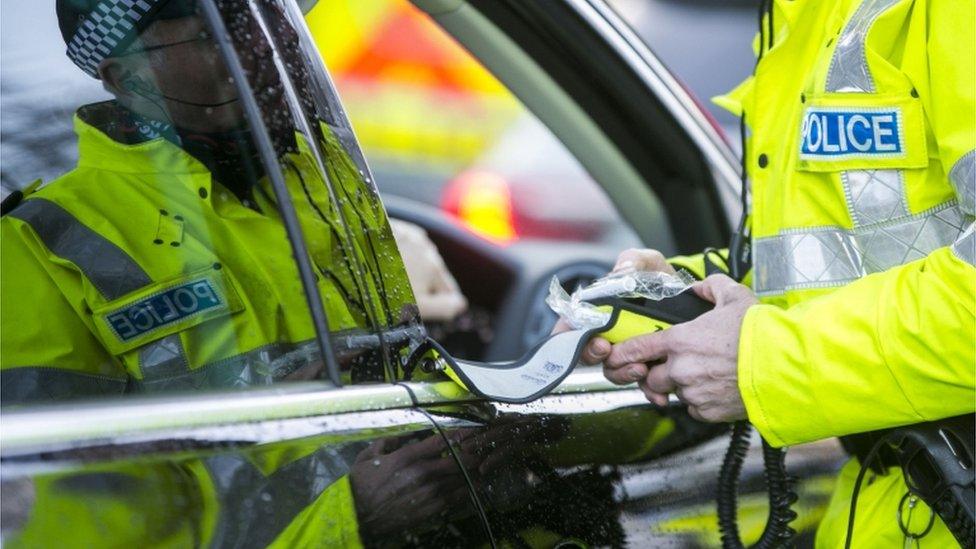
The number of summer roadside tests was down across England and Wales
In August, the Police Federation, which represents rank and file officers, said breath tests figures across the UK were a cause for concern.
"To keep members of the public safe we need to have roads policing officers targeting the 'fatal four' which includes drink/drug driving," said Jayne Willetts, from the federation.
"However, numbers of dedicated roads policing officers has almost halved since 2000, with just under 4,000 now working across England and Wales."
But the Dyfed-Powys police and crime commissioner said he had been reassured by the force's Chief Constable, Mark Collins, that the fall in testing was not due to budget cuts.
Mr Llywelyn said the new approach relied on members of the public tipping off officers.
He said: "If Dafydd Llywelyn has been sitting in a pub drinking all evening and then gets in his car to drive home, we would hope his actions would be reported to the police and he would he intercepted before he had an accident."
- Published4 September 2017
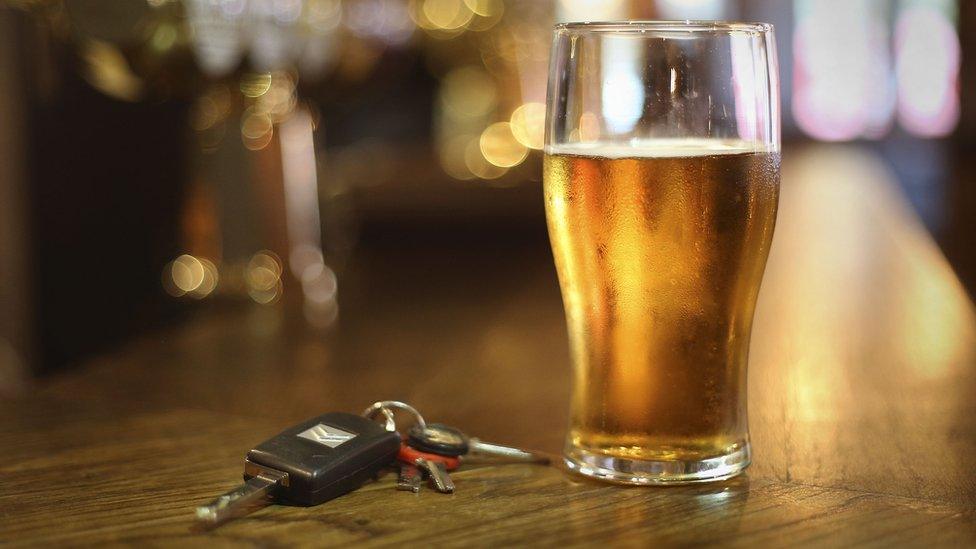
- Published3 February 2017
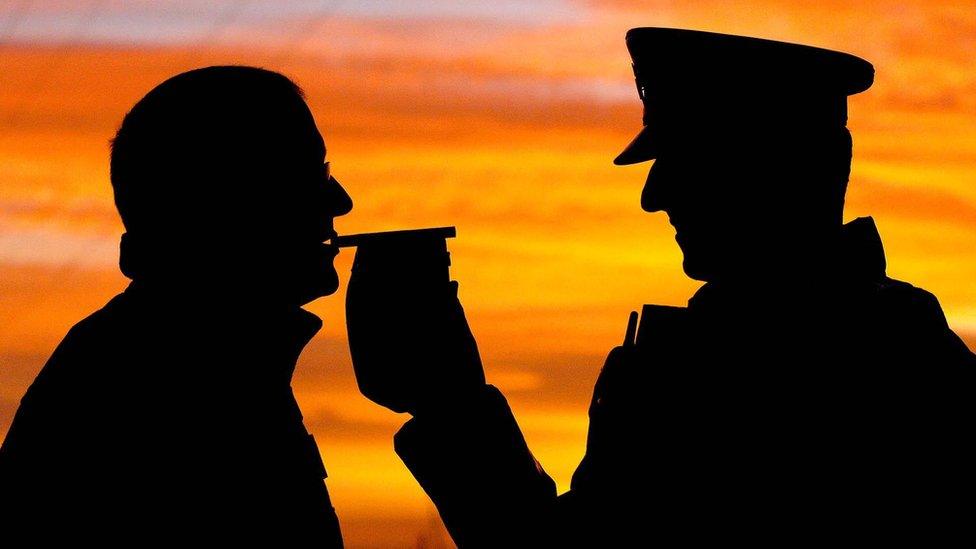
- Published24 February 2017
